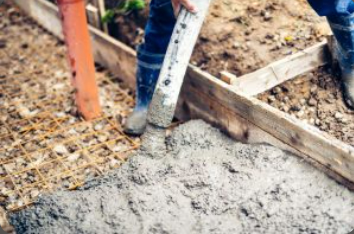
Causes Of Concrete Cracking
Concrete is everywhere. This is especially true if you live in an urban setting where the structures are mostly made of concrete. It’s what you’ll see anywhere you look whether you like it or not.
There are plenty of great reasons why it’s one of the most common building materials used. After all, there aren’t that many materials that offer more in terms of strength and durability than concrete.
Of course, there are other benefits to using concrete as a building material. It looks great and requires very minimal maintenance, both of which are tremendous advantages. It’s not without its problems, though.
One major problem with concrete is cracking. Not only does it look bad, but it could also lead or point to more serious issues with the floor, wall, or any other part of the structure that’s made from concrete.
So what are the various causes of concrete cracking?
Corrosion of Reinforcing Steel
The corrosion of the reinforcing steel is also a cause of concrete cracking. This happens when deicing salts find their way into concrete. When they do, they weaken the alkalinity and that would lead to letting the chloride ions to get into the reinforcing steel. That’s what’s going to cause the corrosion and the steel bars are going to rust after a while. The concrete will expand and cause cracks to appear.
Freeze-Thaw Disintegration
Since concrete is very porous, water tends to get in it. The problem is when the water does get in and freezes because that will cause tiny flakes to break and fall off from the surface.
This scenario is already bad enough as it is. But it can be made even worse by deicing salts. The situation is quite common in households during winter or cold weather.
Plastic Shrinkage Cracks
This is a case when the surface is made to dry completely before the concrete is able to gain its full strength. Plenty of cracks will then form on the surface of the concrete.
Usually, the cracks will just be ignored. It’s typically the case with decorative concrete since the cracks even add to the look of the concrete’s surface.
The problem is that people don’t know that the cracks can be quite dangerous. Professional concrete contractors solve the problem through proper curing. A more permanent solution to the issue is the use of fiber reinforcement of the concrete.
Alkali-Aggregate Reaction (AAR)
What’s known as Alkali-Aggregate Reaction (AAR) refers to a reaction that happens in concrete over time. The reaction is between the highly alkaline cement paste and the non-crystalline silicon oxide, which is found in a lot of common aggregates.
The reaction results in the destruction of the concrete after it absorbs water or some other liquid. It’s definitely another of the various causes of concrete cracking that you need to know about and look out for as a homeowner. Visit Concrete Bedford TX.
0 Comments